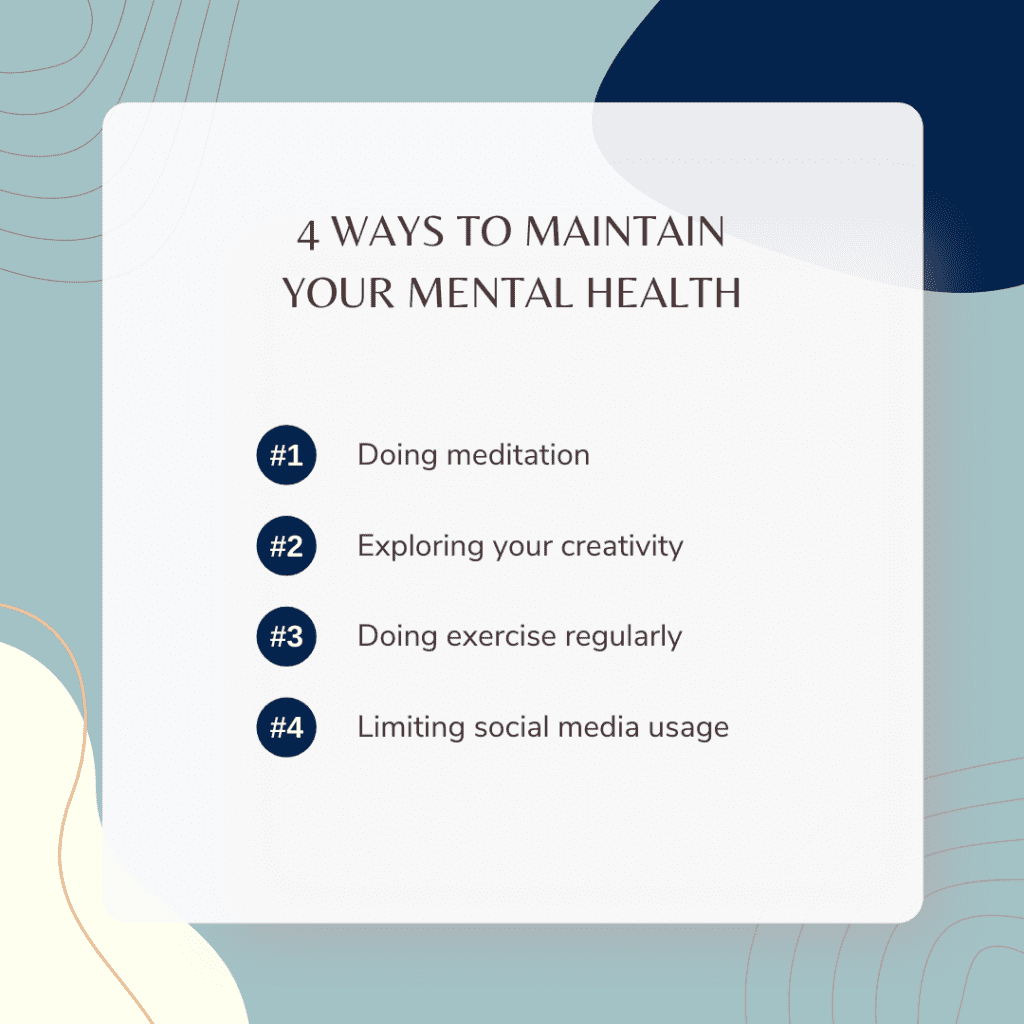What Is Acceptance and Commitment Therapy?
Updated 01/20/2022
“What is acceptance and commitment therapy?” is a frequently asked question. Acceptance and Commitment Therapy (ACT) is a unique empirically based psychological intervention that uses acceptance, mindfulness, and commitment strategies to increase psychological flexibility. What differentiates ACT treatment from other sorts of medical intervention is that treating issues doesn’t necessarily mean the goal is to eradicate them. A lot of stress comes from people who are already dealing with mental health issues feeling that they’re in the wrong for even having these struggles. They’ll see themselves as weak for conditions like depression and do all they can to feel otherwise. They might try to act cheerful or aloof when they’re feeling unhappy and tense. They might cover up their negative emotions with drugs and alcohol. However, in trying to act like nothing’s wrong, more problems sprout up. Someone with an anxiety disorder can’t just tell themselves to calm down when having a panic attack. This is like trying to aggressively steer your way out of a skid when driving on black ice. For someone to be able to deal with long-present issues, they may have to accept that the only way out is to realize that there might not be a way out. They may have to deal with their issues, be they depression, anxiety, addiction, or another problem, in one form another, for the rest of their lives.
So, What Is Acceptance and Commitment Therapy upon closer examination? Let’s find it out!

When Is Acceptance and Commitment Therapy (ACT) Used
Acceptance and Commitment Therapy (ACT) is a mental health treatment used to treat patients who have issues that they’ve been struggling with for a long time. Some of these issues can be traced back to early childhood, such as separation anxiety. Those who struggle with addiction and intense bodily discomfort can also benefit from ACT. The purpose is to help patients come to terms with their situation. It’s illogical to try to completely reverse a way of thinking and feeling that’s been present for so long that they can’t recall what it’s like to not feel that way. The best treatment can be to help them see their feelings as just being a fact of life, not something they need to suppress.
How Does Acceptance and Commitment Therapy (ACT) Work
When undergoing Acceptance and Commitment Therapy, a patient needs to review their negative feelings and how they’re most likely to worsen. For example, someone who has claustrophobia might feel the worst when in tight or enclosed spaces, such as elevators. Someone with depression might have those feelings intensified when they’re trying to fall asleep.

Reviewing moments of distress helps a patient to see how their resistance has negatively impacted them. For example, if you’re someone with claustrophobia who has gotten in an elevator and tried to pretend that you were completely calm, your efforts likely backfired. You didn’t just decide one day to be claustrophobic, so you can’t just randomly declare that they’re not claustrophobic. Even if nothing goes wrong on the elevator, you’re likely to feel tenseness. Then, when you get off, you don’t feel any real relief. You just feel frustrated with yourself because trying to force positive emotions hasn’t worked out for you. You might think that the problem is that you haven’t tried hard enough to get rid of your negative emotions. To cover up your fear, you might only go into elevators if you’re under the influence of drugs, believing that they’ll eliminate any fear.
Mindfulness
ACT is largely based on mindfulness. Those who have studied meditation know that mindfulness involves being present at the moment and accepting the situation as it is. Through mindfulness, one comes to understand how much suffering is found not in bad situations but in resistance to bad situations and an attachment to the permanence of good things. One has to surrender themselves to negative emotions in order to stop them from having control. They must accept them as readily as one accepts the rain.
When you get caught in their rain, you have to accept it. You can’t tell yourself that it’s not raining and hope that your clothes suddenly dry. You might be upset about the situation, but anger doesn’t change anything. If you pull out an umbrella, you have some protection. However, even if you have nothing to keep you dry, you can still deal with the rain in a better manner. It all starts with acceptance.
On a similar basis, your negative feelings might not be welcomed, but they have a reason for existing. You may have created associations that make you think about certain ways in certain situations. If you are riding an elevator that got stuck when you were a child, it’s totally understandable that you would develop this kind of fear as a result. Not all conditions can be easily explained, and you shouldn’t feel like you have to come to any sort of epiphany.
When you find yourself in a negative mood, don’t fight it. Let yourself feel however you do. Bring yourself closer to your mind and body. Observe your thoughts, one at a time. You can turn your negative thoughts into statements that bounce around your mind. Look at each one and consider their validity. This practice lets you see how some of your thoughts are grossly misleading. You might still feel the judgment you have towards yourself, but you can identify these thoughts as being tricks of your biased mind and not actual truths. There’s often a physical component to these situations, such as sweating or having your heart start racing. Should this happen, you can observe what’s happening. How fast is your heart going? You can use slow, diaphragmatic breathing to calm you down.
These kinds of issues aren’t fun to experience, but they can be managed. Giving yourself permission to not feel great is one of the best things you can do to take control of your life. Accept the bad moments, and the good ones will be even better. This may be easier said than done, but with Acceptance and Commitment Therapy, it is possible. Working closely with a therapist, clients will learn how to process certain events and feelings. When confronting these emotions, individuals will decide if it should be accepted for what it is and make the appropriate behavioral changes.

Acceptance and Commitment Therapy (ACT) and Cognitive Behavioral Therapy (CBT)
Acceptance and Commitment Therapy (ACT) was evolved from Cognitive Behavioral Therapy (CBT). ACT has a strong connection to the power of changing behavior. ACT differs from CBT greatly in that ACT says that you change the relationship you have with your thoughts versus trying to change them, so you don’t have to do anything with your thoughts. ACT focuses on mindfulness, acceptance of unpleasant emotions, and diffusion of challenging thoughts, which means you learn to separate yourself from your thoughts, all in the name of moving you towards a meaningful life based on you taking committed action towards your values.
If you or someone you know could benefit from Acceptance and Commitment Therapy, contact our team at Overland IOP today.

HOW OVERLAND IOP CAN HELP
Overland IOP is a facility that demonstrates personalized care to every individual that arrives here, as every person is different and has unique requirements and objectives they want to meet. Our team, at Overland IOP, offers services that range from mental health counseling to rehabilitative services for various and complex addictions. Navigating the world of recovery and healing should not be a singular undertaking, especially when such beneficial resources such as ours exist and are here to help. With the new California mental health law, quality care and support have become significantly more accessible to those that are in urgent need of mental health aid, and Overland IOP is undoubtedly one of the best facilities in the state when it comes to providing these crucial services.
Overland Intensive Outpatient is ready to provide both in-person and virtual care (Telehealth services). Help is only one call away! We work 24/7.
Published: March 05, 2021

Published: January 27, 2026
What Is DPD? Understanding Dependent Personality Disorder
Most people don’t ask, “What is DPD or Dependent Personality Disorder?” They come in feeling drained, anxious, and stuck in relationships that feel restrictive yet hard to leave. Being alone feels unsettling. Decision-making feels paralyzing. Reassurance becomes a daily necessity rather than a comfort. At Overland IOP in Los Angeles, we often see Dependent Personality […]
Read more
Published: January 18, 2026
IOP Program Requirements: What to Expect?
If you’re exploring an Intensive Outpatient Program (IOP), one of the first questions that usually comes up is simple but important: Do I qualify—and what does an IOP actually require? At Overland IOP, IOP is designed for people who need structured, consistent support for mental health and/or substance use—but who don’t require 24/7 residential care. […]
Read more
Published: December 15, 2025
Behavioral Health During the Holidays: Managing Stress, Anxiety & Emotional Triggers
Why the Holidays Are Harder Than They Look? For many people, the holiday season is portrayed as joyful and restorative. In reality, December is one of the most emotionally challenging months of the year, especially for individuals navigating mental health conditions, substance use recovery, or emotional regulation difficulties. According to the National Alliance on Mental […]
Read more
